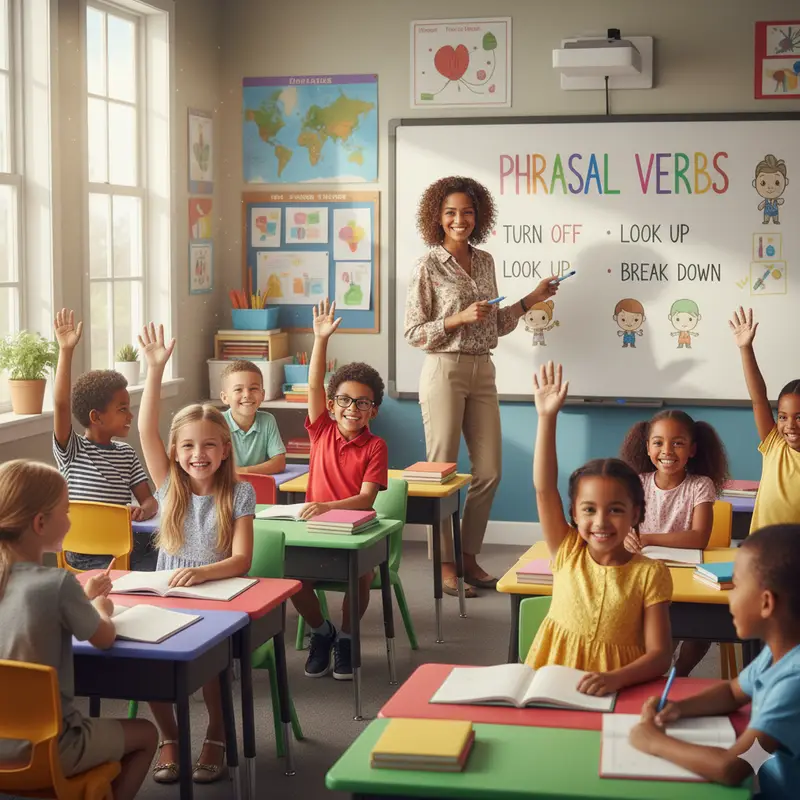Power Up Your English 5 Tenses Exercises with Answers
Mastering tenses is a crucial step in building a strong foundation in English grammar. Whether you’re a student looking to improve your language skills or a parent helping your child excel, understanding tenses can significantly enhance both spoken and written communication.
In this blog, we’ve crafted 5 engaging and practical exercises that will not only test your knowledge of tenses but also help you gain confidence in using them correctly. Each exercise is paired with clear answers and explanations, making it easy to track your progress and learn from mistakes.
Dive in, and let’s power up your English with these essential tenses exercises designed for learners of all levels!
Exercise 1: Complete the Sentences
Fill in the blanks with the correct tense of the verbs in parentheses:
- By the time the professor arrives, the students (complete) their group discussion.
- I (not/realize) how much time had passed until the meeting was over.
- The researcher said she (analyze) the data since early morning.
- If she (study) harder, she might have been able to secure the scholarship.
- While the lecture (deliver), a technical glitch occurred, disrupting the session.
- The team (have) a meeting at this time tomorrow to finalize the project details.
- He (not/visit) the library since he submitted his thesis.
- By 2030, scientists (develop) even more efficient renewable energy technologies.
Also Read: Mastering Multiplication: Fast and Fun Strategies for All Ages
Exercise 2: Rewrite the Sentences
Change the following sentences into the tense mentioned in parentheses:
- She writes a letter. (Past Continuous)
- They are watching a movie. (Future Perfect)
- I had eaten lunch. (Present Perfect)
- We will be playing cricket. (Past Perfect Continuous)
- He reads books daily. (Future Continuous)
Exercise 3: Match the Tenses
Match the sentence to the correct tense:
- She has been cooking since morning.
- They will visit Paris next summer.
- I was sleeping when the doorbell rang.
- By the end of the year, he will have saved enough money.
- She had finished her homework before the party.
Options:
- Future Perfect
- Past Perfect
- Present Perfect Continuous
- Past Continuous
- Future Simple
Exercise 4: Choose the Correct Option
Select the right tense for each sentence:
- By the time the show starts, everyone (will arrive/will have arrived).
- She (is writing/writes) her diary every night.
- We (have been studying/had studied) for three hours before we took a break.
- The baby (was sleeping/sleeps) soundly when the alarm went off.
- They (will be working/will work) on the project throughout the weekend.
Also Read: 15 Best Documentaries for Kids: Making Screen Time Meaningful
Answers to Exercises
Exercise 1:
- will have completed
- did not realize
- had been analyzing
- had studied
- was being delivered
- will be having
- has not visited
- will have developed
Here’s an explanation of the tenses used in each sentence:
1. will have completed (Future Perfect Tense):
This tense is used to indicate an action that will be completed before a specific point in the future (before the professor arrives).
2. did not realize (Past Simple Tense):
This tense is used to describe a completed action in the past (realizing time passed).
3. had been analyzing (Past Perfect Continuous Tense):
This tense is used to show an action that started in the past and continued for some time before another past event (analyzing the data before speaking).
4. had studied (Past Perfect Tense):
This tense is used for actions that were completed before another past hypothetical condition (studying before securing the scholarship).
5. was being delivered (Past Continuous Passive Tense):
This tense is used to describe an ongoing action that was happening in the past (the lecture being delivered) when another action (glitch) occurred.
6. will be having (Future Continuous Tense):
This tense is used to describe an action that will be ongoing at a specific time in the future (meeting tomorrow).
7. has not visited (Present Perfect Tense):
This tense is used to describe an action that started in the past and has relevance to the present moment (not visiting since submitting the thesis).
8. will have developed (Future Perfect Tense):
This tense is used to describe an action that will be completed by a specific time in the future (developing technologies by 2030).
Exercise 2:
- She was writing a letter.
- They will have watched a movie.
- I have eaten lunch.
- We had been playing cricket.
- He will be reading books daily.
Exercise 3:
- Present Perfect Continuous
- Future Simple
- Past Continuous
- Future Perfect
- Past Perfect
Exercise 4:
- will have arrived
- writes
- had studied
- was sleeping
- will be working
Why Learn Tenses?
Learning tenses improves communication skills, helps in writing better sentences, and boosts confidence in speaking English. Encourage your kids to practice regularly using these exercises and watch their understanding grow!



